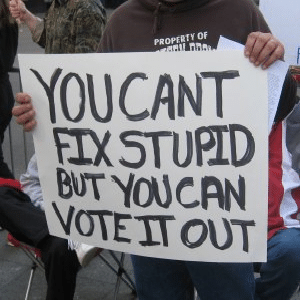Last Friday marked a critical deadline in the California legislature, and with the passing of that day, a number of marijuana reform measures saw their prospects snuffed out or deferred until next year, while some not so friendly measures are still alive. Friday was the last day to get bills out of the chamber where they were introduced; if they hadn’t moved to the other chamber by then, they died.
On the medical marijuana front, Senate Bill 129, introduced by state Sen. Mark Leno (D-San Francisco), would have protected the employment rights of medical marijuana users, but stalled after passing out of the Senate Judiciary Committee. A similar bill passed the legislature in 2008, only to be vetoed by then Gov. Schwarzenegger (R), but support has since slipped among moderate Democrats and labor, according to California NORML.
Sen. Leno asked that the bill be put on the inactive bill while he attempts to gin up more support. That means the measure will be held over until January, when it can be reconsidered.
A bill that would have established a statewide commission to make recommendations on how to overcome the state’s medical marijuana distribution mess, Senate Bill 626, also failed to move. That bill was bottled up in the Senate Appropriations Committee, and sponsor Sen. Ron Calderon (D-Los Angeles) is pondering how to revive it next year.

A couple of bills that did move were not favorable for medical marijuana dispensaries. Assembly Bill 1300, sponsored by Assemblyman Bob Blumenfield (D-Los Angeles), started out clearly stating that dispensing medical marijuana was legal under state law. As such, it garnered the support of state and national reform groups. But it was gutted in committee, and that language was removed, leaving only language allowing localities the option of regulating collectives. That bill now heads to the Senate.
To add insult to injury, an even worse bill passed the Senate and is headed for the Assembly. Senate Bill 847, introduced by Sen. Lou Correa (D-Anaheim), would impose statewide zoning restrictions on dispensaries. Under the bill, dispensaries would have to be at least 600 feet from a residential area unless the locality chooses to have a more permissive zoning law.
On the non-medical front, what would have been ground-breaking legislation giving judges and prosecutors the option of trying cultivation offenses as misdemeanors instead of felonies is down, but not quite out. Assembly Bill 1017, introduced by Assemblyman Tom Ammiano (D-San Francisco), was defeated last week on a vote of 24-36, but won a motion to reconsider, meaning the Assembly can revisit the bill in January.
 “The state legislature has once again demonstrated its incompetence when it comes to dealing with prison crowding,” commented California NORML Director Dale Gieringer. “With California under court order to reduce its prison population, it is irresponsible to maintain present penalties for non-violent drug offenses. It makes no sense to keep marijuana growing a felony, when assault, battery, and petty theft are all misdemeanors. Legislators have once again caved in to to the state’s law enforcement establishment, which has a vested professional interest in maximizing drug crime.”
“The state legislature has once again demonstrated its incompetence when it comes to dealing with prison crowding,” commented California NORML Director Dale Gieringer. “With California under court order to reduce its prison population, it is irresponsible to maintain present penalties for non-violent drug offenses. It makes no sense to keep marijuana growing a felony, when assault, battery, and petty theft are all misdemeanors. Legislators have once again caved in to to the state’s law enforcement establishment, which has a vested professional interest in maximizing drug crime.”
And last but not least, a hemp bill, Senate Bill 676, also authored by Sen. Leno, passed the Senate and awaits action in the Assembly. That bill authorizes hemp to be grown only in a handful of Central Valley counties and Imperial County on the Mexican border, where distance and prevailing winds should keep its pollen away from Northern California’s lucrative marijuana crops.
Some small glimmers of light, but all in all, a pretty disappointing year so far for marijuana reform in Sacramento.
Artilcle From StoptheDrugWar.org — Creative Commons Licensing







